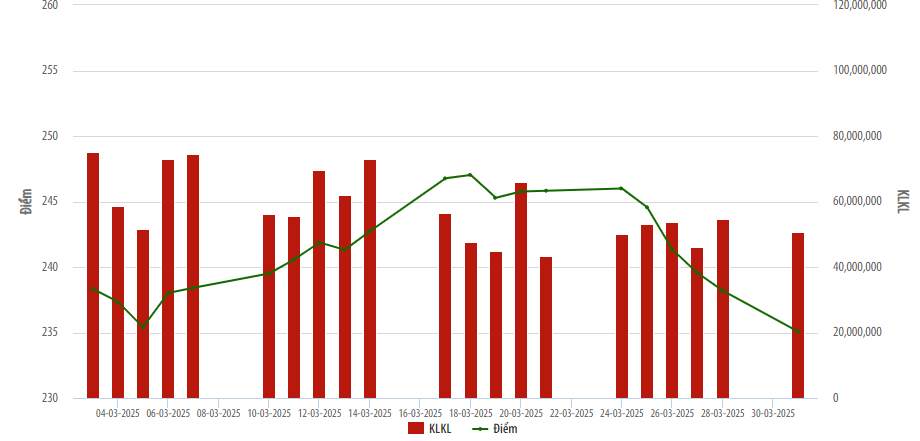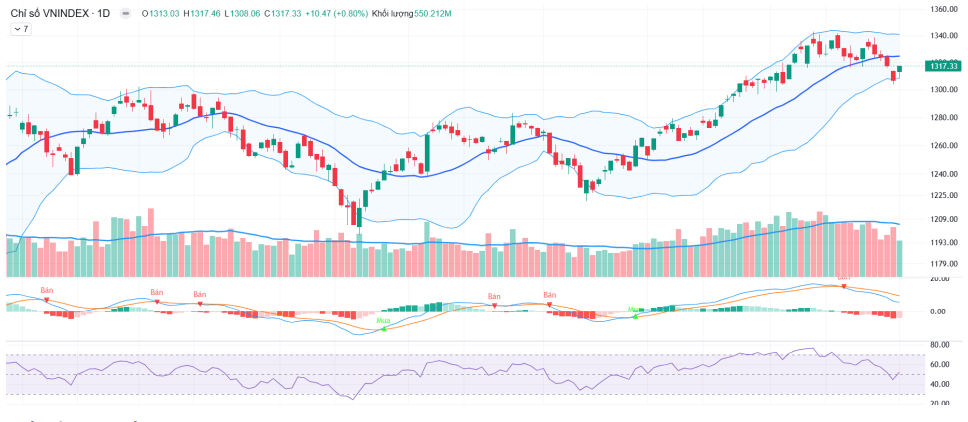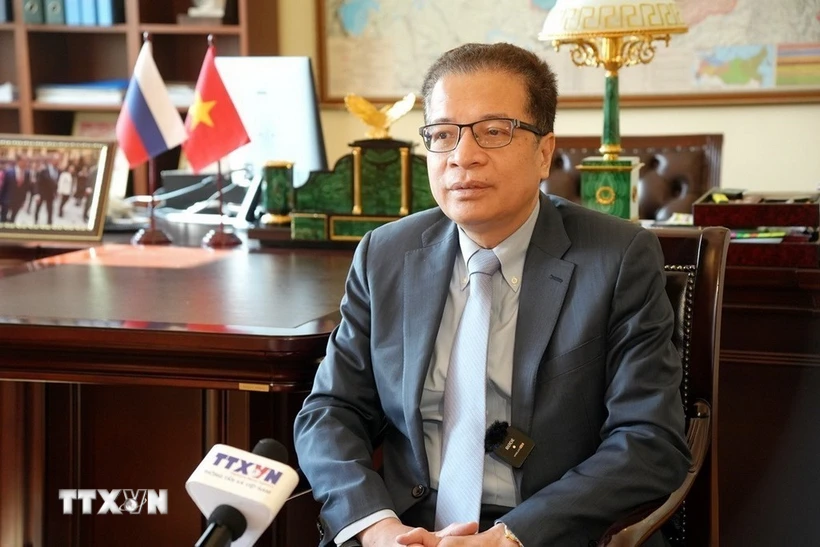According to a survey by Techcombank on the financial health of Vietnamese consumers, the results are worrying about the ability to manage personal finances. Accordingly, 60% of survey participants often have unplanned financial expenses, 75% of people have long-term financial goals but can only achieve them in the short term and 53% of survey participants said that they tried to set up a financial plan but only 30% of them followed through with their goals.
Mr. Pham Luu Hung, Chief Economist and Head of Training and Development Department of SSI Securities, believes that investment education for young people is one of the top priorities for market development. Financial education is no longer an elective subject, personal finance has become a necessary life skill in today's era.
 |
| Personal financial management is a trend that many young people are interested in today, photo: ST |
Having a stable job with a fairly high monthly salary, however, Hoang Bich Ngoc (Long Bien, Hanoi) said: “After the Covid-19 pandemic and economic crisis, there was a long period of unemployment and no reserve money to spend, I realized that having a stable job or living on “monthly salary” is no longer a safe choice. In addition to having additional sources of income, managing personal finances scientifically and participating in investments to achieve financial freedom is also something I have been studying more seriously.”
Not only Ngoc, personal financial management is becoming a trend that young people are interested in recently. Grasping this psychology, Vietnamese banks have also quickly launched products to support customers in managing their finances, integrated right into digital banking applications. For example, at Techcombank, this bank has applied AI to launch a personal financial management feature. Through analyzing the history and financial transaction behavior of each customer, the system will provide useful advice such as saving "tips", suggesting suitable financial products, or consulting on asset growth. Not only that, this feature also promptly warns of excessive spending or unexpected payments of users, helping customers increase their financial health as well as achieve their goals independently. This not only helps customers manage their finances more effectively but also creates a difference and competitiveness for the bank.
Not out of the race, TPBank has deployed the virtual financial assistant TPBank eBank AI, helping customers track income and expenses, while also providing suggestions on savings and investments suitable for each individual. MBBank also uses artificial intelligence in the MB SmartBanking application to analyze spending behavior, thereby proposing optimal personal financial management solutions.
In the “Big 4” group, Vietcombank with the VCB Digibank platform has upgraded many features, not only supporting customers to track transactions but also suggesting suitable savings packages for each financial stage, such as real estate investment, education, buying a car, traveling, weddings, having a baby, buying technology products... with reasonable accumulation time to help optimize capital resources intelligently. In addition, some banks such as Vietinbank, BIDV... have now deployed online investment platforms right on the banking application, allowing customers to access stocks, open-end funds and bonds with just a few steps.
According to experts, artificial intelligence plays an important role in developing new products and services. By analyzing customer and market data, AI can help banks identify new trends and needs, thereby developing appropriate products and services. Banks applying AI to support users in managing their personal finances is a right direction, not only improving customer experience but also retaining users with the bank when all spending, investment, and saving needs in life are intelligently integrated on just one application.
Not only in Vietnam, banking services globally are also shifting towards personalizing user experiences. Capgemini's Global Retail Banking Report (WRBR) 2025 also pointed out significant changes in retail banks over the past decade. Banks have been adopting digital innovation to provide customers with seamless, personalized experiences that meet their unique needs at an unprecedented scale. The financial services sector has evolved from product-centric to customer-centric, marking a fundamental change in the way banks approach customers. Traditional, fragmented customer experience processes have given way to seamless, end-to-end digital experiences. Today, customers demand intuitive, efficient, personalized services - it is this customer expectation and behavior that is driving the transformation.
Experts expect that with this trend, modern banking services will be more optimized to not only be a transaction channel but also a powerful "financial assistant" for users.
Source: https://thoibaonganhang.vn/quan-ly-tai-chinh-thong-minh-voi-ngan-hang-so-162021.html


![[Photo] Close-up of Vietnam's sniffer dog team searching for earthquake victims in Myanmar](https://vstatic.vietnam.vn/vietnam/resource/IMAGE/2025/4/1/d4949a0510ba40af93a15359b5450df2)



![[Photo] Relatives of victims of the earthquake in Myanmar were moved and grateful to the rescue team of the Vietnamese Ministry of National Defense.](https://vstatic.vietnam.vn/vietnam/resource/IMAGE/2025/4/2/aa6a37e9b59543dfb0ddc7f44162a7a7)
![[Photo] Third meeting of the Organizing Subcommittee serving the 14th National Party Congress](https://vstatic.vietnam.vn/vietnam/resource/IMAGE/2025/4/2/3f342a185e714df58aad8c0fc08e4af2)

















































































Comment (0)